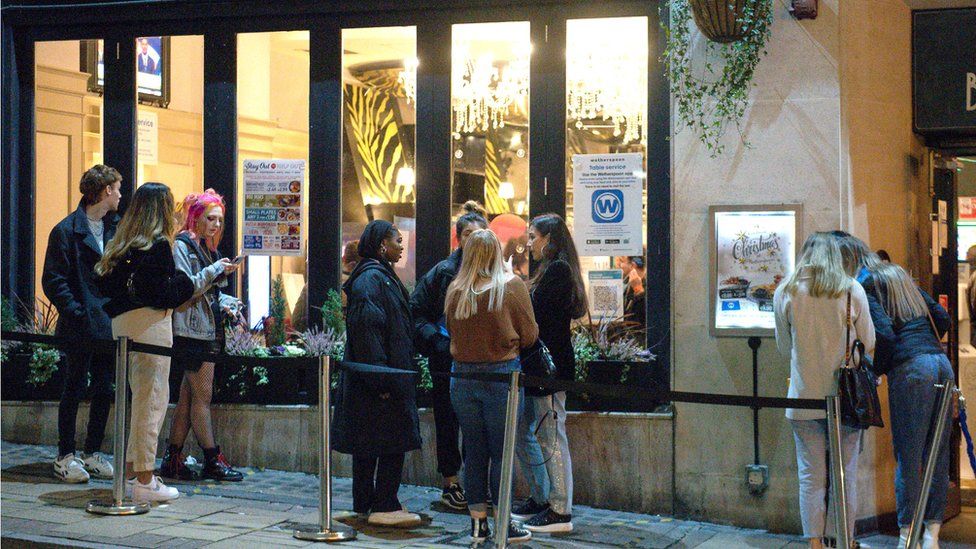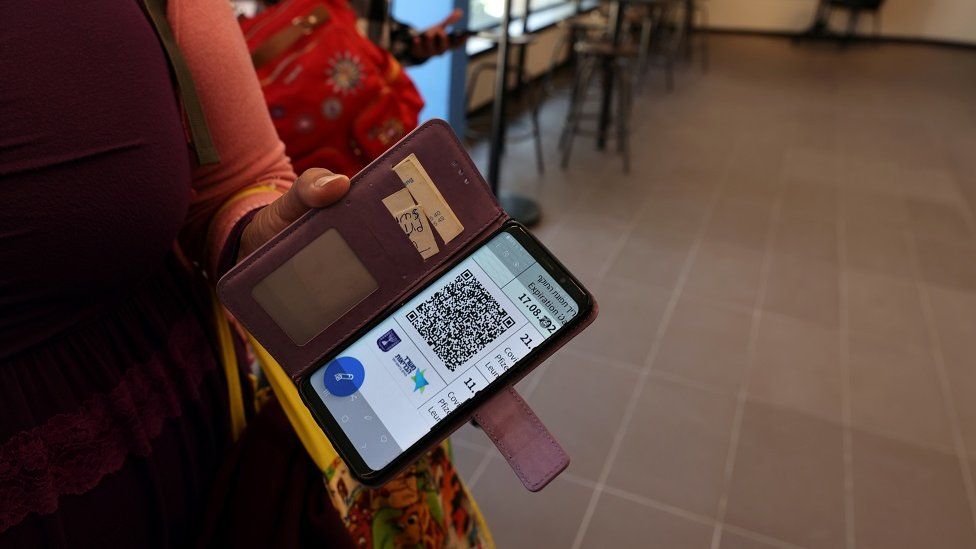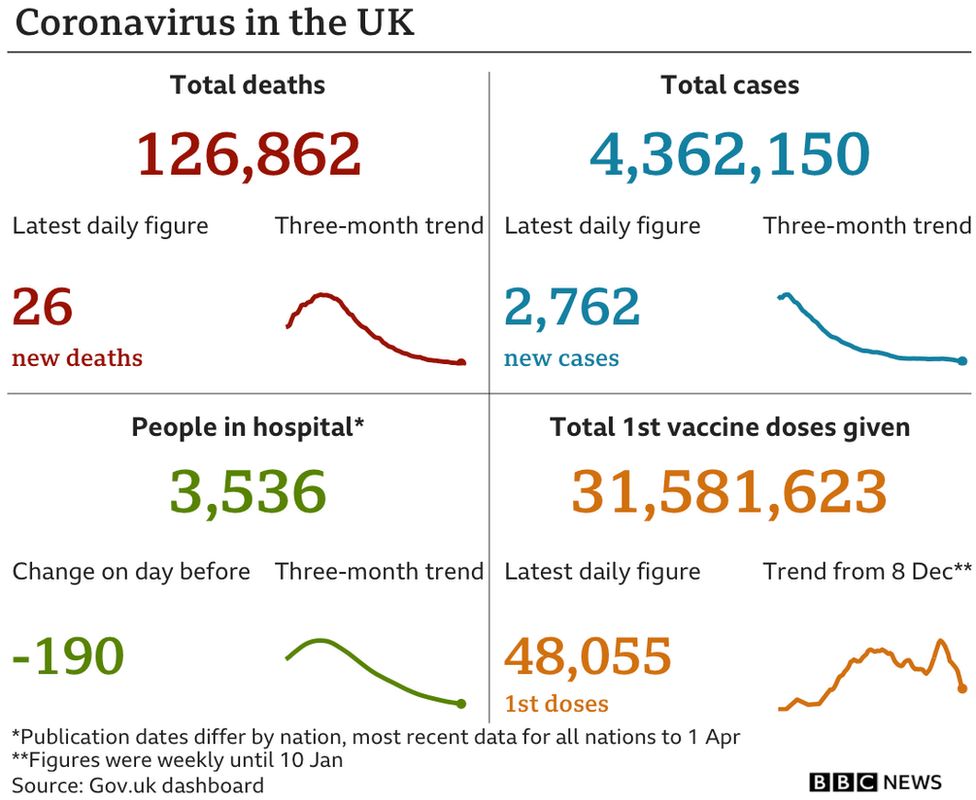Certificates are likely to be a feature of life until the Covid threat is over, a government review says.

image copyrightPA Media
Criticism is growing over plans for Covid passports in England, amid fears they could create a “two-tier” society.
Government documents released on Monday said such certificates – that prove if someone has had a vaccine, has tested negative or has immunity – were likely to become “a feature of our lives”.
At Monday’s news conference, PM Boris Johnson did not rule out the idea.
But many MPs have criticised the plans, with senior Tory backbencher Mark Harper calling for a vote on the issue.
The UK government said it was working with the devolved administrations in Scotland, Wales and Northern Ireland to seek a “consistent approach”.
Mr Johnson has the power to set public health regulations for England, but it is a devolved power in the other UK nations.
A government review is currently being carried out to see how the passports could work in England – and they are going to be trialled at upcoming events including the FA Cup final at Wembley Stadium.
No decision has yet been made on whether they will be introduced, but the government has now published an update on its review.
It says Covid status certificates could play a role in allowing people to return to theatres, nightclubs and mass events like festivals, and could allow social distancing to be relaxed in hospitality venues.
“Even without government intervention, Covid status certification is likely to become a feature of our lives until the threat from the pandemic recedes,” it added.
A recent opinion poll of more than 8,000 UK adults suggested there was strong public support for the use of “vaccine passports” in certain situations.
More than three-quarters (78%) of those surveyed by Ipsos Mori supported their use for international travel and to visit a relative in a care home.
The research also showed 74% of people supported their use to visit relatives in hospital and 68% to attend the theatre or indoor concerts.
But opposition to Covid passports being used within the UK has mounted – with a group of more than 70 cross-party MPs criticising the plan last week.
They said demanding medical proof in order to take part in local community life, for example going to venues like pubs, is discriminatory and divisive.

image copyrightReuters
Mark Harper, who chairs the Covid Recovery Group of Conservative MPs which is against lockdown restrictions, said it was not acceptable for the end of social distancing to depend on passports.
He said the government “should ask Parliament to give its approval as ministers have promised” and that it was “crucial” that MPs are allowed to vote on the issue.
“Trying to introduce these domestic vaccine passports by the back door by linking them to removing social distancing rules just won’t be acceptable either,” he added.
Labour’s shadow health secretary Jonathan Ashworth did not rule out voting for the policy in Parliament, but said he would not support certificates for everyday activities.
He told BBC Breakfast: “I’m not going to support a policy that – here in my Leicester constituency – if someone wants to go into Next or H&M they have to produce a vaccination certificate on their phone.”
The government has said certificates to permit access to essential public services, public transport and essential shops should “never be required, in order to ensure access for all”.

When Prime Minister Mr Johnson was asked about the idea at the press conference on Monday, he said Covid passports would not be needed for the easing of restrictions next week or on 17 May.
He acknowledged there were “ethical and practical issues” and added: “You have to be very careful how you handle this and don’t start a system that is discriminatory.”
“But I want to stress that we are some way off finalising any plans for Covid certification in the UK,” he said.
The government’s review into Covid passports is not expected to be finalised until the summer.
Several countries are already implementing their own passport schemes. In Israel – which has the highest vaccination rate in the world – people who have been fully vaccinated are able to show a “green pass” to be allowed into facilities such as hotels, gyms or theatres.


The debate comes as Mr Johnson confirmed that England’s next step of lockdown easing would go ahead as planned.
It means from 12 April, non-essential shops, gyms, hairdressers and close contact services can reopen, as well as hospitality venues serving food and drink outdoors.
It comes as more than 5.4 million people in the UK have been fully vaccinated, with a total of more than 31.5 million first doses given.
Latest government figures released on Monday showed another 2,762 cases had been confirmed, and a further 26 people had died with coronavirus within 28 days of testing positive.

